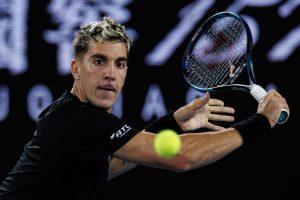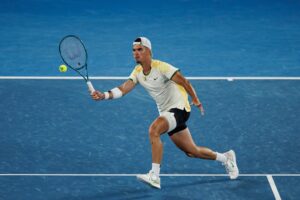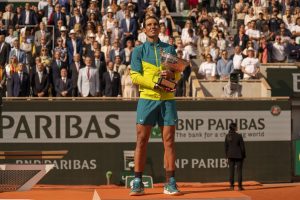Roger Federer will bid to cement his status as the most successful player in ATP Finals history when he arrives in London this weekend. The Swiss maestro has won this season-ending competition a record six times and he will be eager to add to that tally. However, the great man has not tasted success at the ATP Finals since 2011 and he goes into this year’s competition as the distinct second favourite. Standing in his way is new world number one Novak Djokovic, who is enjoying a sensational season after overcoming injury to return to the peak of his powers.
To add an extra level of intrigue to this tournament, Djokovic has won the ATP Finals five times and he will move level with Federer in the all-time stakes if he clinches the 2018 title. As first and second seeds, the two men have been kept apart in the draw and they look destined for an epic showdown in the final on November 18. Djokovic has landed in Group Guga Kuerten along with Alexander Zverev, Marin Cilic and John Isner, while Federer is in Group Leyton Hewitt with Kevin Anderson, Dominic Thiem and Kei Nishikori.
Federer looks to have secured the easier draw. Zverev displays flashes of brilliance, which makes him dangerous, while Cilic and Isner are both tricky opponents due to their powerful serves. Djokovic should top that group, but he will have to be at the top of his game. Anderson is a big server, and Federer will require every ounce of panache and flair to usurp him, but Thiem is a clay court specialist and unlikely to thrive in London, while Nishikori also lacks the power to genuinely threaten in this tournament.
A look at the Sporting Index lines highlights the gulf in quality at the top of the men’s game. Djokovic is the favourite to win this tournament.
Only the top eight players in the world qualify for the ATP Finals, and they descend upon London to battle it out for the lion’s share of an $8 million prize purse. World number two Rafa Nadal misses this tournament through injury, while world number four Juan Martin del Potro is also absent, so that has allowed Nishikori and Isner – ninth and 10th respectively in the rankings – to sneak in. In the absence of Nadal, Djokovic and Federer look like the only men that can win it.
They should both top their groups, avoid one another in the semis and then lock horns for a thrilling final. If that happens, Djokovic will go in as the clear favourite to secure victory. They have met twice this year and the Serb has triumphed on both occasions. They faced off in the final of the Cincinnati Masters back in August and Djokovic won 6-4, 6-4. In doing so he became the first player in history to claim all nine ATP Masters 100 tournaments, after previously losing three finals in Cincinnati to the Swiss. That caused him to roar with glee, and his latest victory was even more stirring.
These titans of the men’s game played one another last week in the Paris Masters semi-finals and it was a truly momentous clash. Djokovic rescued set point in a tie-break in the opening set before going on to win it 8-6 following an intense 74 minutes on court. There was little to separate them in the second, but Federer eventually broke and claimed it 7-5. They went into a decider and again it ended in a tie-break, with Djokovic ultimately prevailing. “Novak is obviously on a roll, you can feel it,” Federer admitted after the match.
That extended the Serb’s winning streak against Federer to four matches, a run stretching back to 2014, and he now leads 25-22 in the career head-to-heads. Yet Federer showed enough encouraging signs in that final to suggest he could usurp Djokovic in London. He saved 12 break points in that semi-final and he served commandingly throughout. He is happy with his game at present and he should approach this tournament with confidence. If he continues striking the ball aggressively and taking the fight to his opponents, he could certainly seize another ATP Finals title.
After beating Federer, an exhausted Djokovic lost the Paris Masters final against the unheralded Karen Khachanov the following day. That ended his 22-match winning run and it might knock his confidence a tiny bit ahead of this competition. Federer might be able to take advantage of similar levels of fatigue if he meets Djokovic in the final on November 18. He is now 37 years of age, six years older than Djokovic, but he has managed his body well of late. He is running out of time to add to his trophy haul, and that burning desire for further success might just swing the pendulum in his favour.






